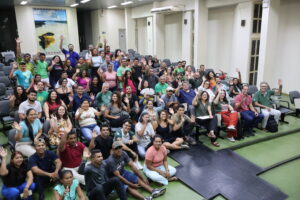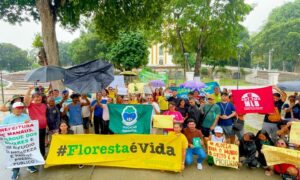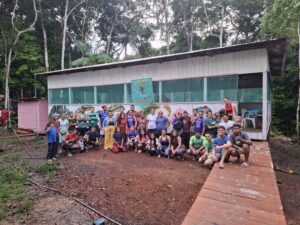Representatives of the Mid-Juruá Association of Agroextractive Women participate in scientific conferences in Rio de Janeiro and Santa Marta, Colombia.
By Nathalia Messina e Camila Duarte Ritter
Translated by Bruna Favaro
Instituto Juruá follows a special path, combining traditional knowledge with scientific knowledge. One initiative that promotes this integration is a research group focused on Gender and Sociobiodiversity Value Chains, registered in the National Council for Scientific and Technological Development (CNPq) as a line of investigation of Amazonian Socioecology.
The group has been meeting since the activities of the Gender and Youth Diagnosis in Mid-Juruá, carried out in 2022 at the request of Association of Agroextractivist Women of Mid-Juruá (ASMAMJ). From scientific products to feedback in communities and between institutions, there was a need to consolidate a stronger and more diverse group, which could count on social agents – women researchers, technicians and agroextractivists – from different Amazonian territories. The group focuses on discussions related to women’s participation in forest economies and also in the scientific production of the data generated.
Therefore, in November this year, we had the opportunity to expand the protagonism of women from traditional communities in the universe of scientific research, with their active participation in two scientific congresses in Latin America: the Brazilian Congress of Agroecology (CBA), which took place, in its 12th edition, in Rio de Janeiro, between November 20th and 23rd; and the Knowledge Dialogue Cycle on Participative Fisheries Management in the Amazon (Ciclo de Diálogo de Saberes sobre o Manejo Participativo da Pesca na Amazônia) at CIMFAUNA in the city of Santa Marta, Colombia, between November 19th and 24th.
XII Brazilian Congress of Agroecology (CBA)
The Brazilian Agroecology Congress (CBA), held by ABA (Brazilian Association of Agroecology) and several partners, took place in the historic site of Lapa, Rio de Janeiro and had an audience of “more than 10.000 people (…), among 5.500 registered and the public of the open activities. There was the presence of agroecology in squares, cultural centers and public universities.”, as reported by ABA itself on its social networks.
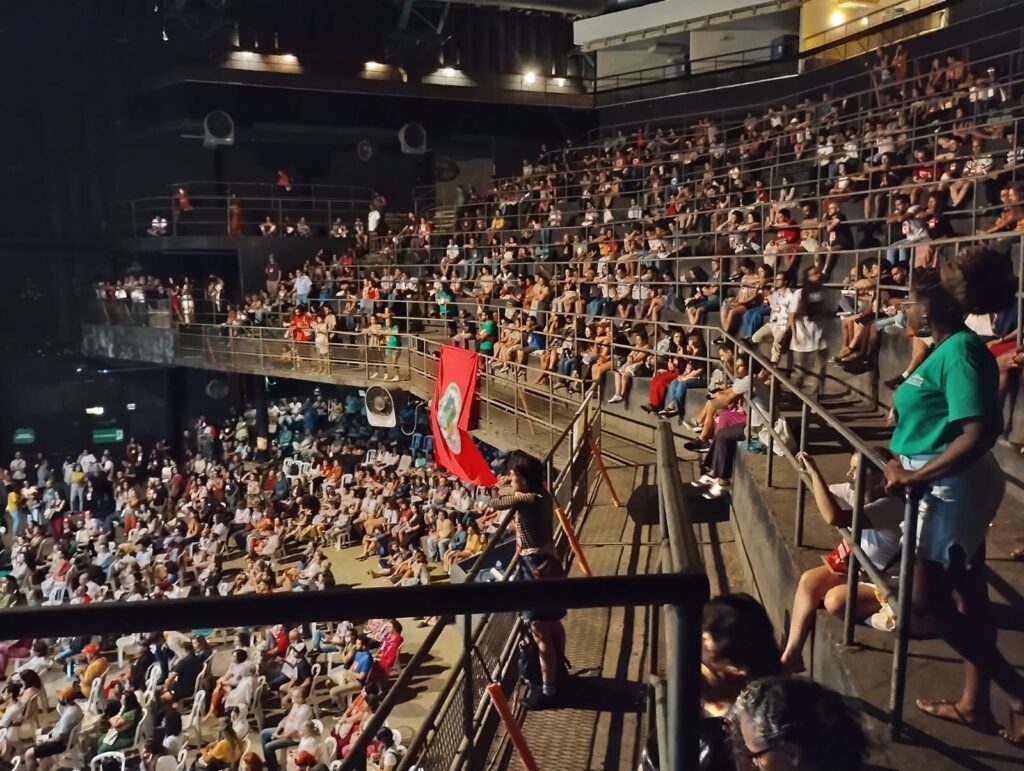
The president of ASMAMJ, Rosangela Cunha, was present, together with Nathália Messina, socio-environmental analyst from Instituto Juruá, and the socio-environmental analyst from Memorial Chico Mendes, Jessica Pereira, in a caravan supported by SEBRAE Amazonas (Micro and Small Business Support Service) with 26 participants from the Maniva Agroecology Network (REMA). Instituto Juruá and United States Forest Service also collaborated with the delegation of women from Mid-Juruá.

The agroextractivist women presented two works based on the expanded abstracts submitted, with Rosangela Cunha being the first author of both articles, and the other co-authors being members of the previously mentioned research group. In the thematic axis “Gender, Feminisms and Diversity”, the presentation brought a case study on women from the Mid-Juruá Territory in the main socio-biodiversity chains developed in Carauari, Amazonas. The second work, in the “Youth and Agroecology” axis, addressed the agroextractive legacy in the Amazon, analyzing potentials and challenges for the insertion of youth in socio-biodiversity value chains.
Furthermore, two other important contributions were presented in the CBA Tapiris de Saberes. A technical report on the organic certification of arapaima – a joint initiative by Coletivo do Pirarucu and Maniva Agroecology Network (REMA) – and the experience of the Association of Agroextractivist Residents of Lower Mid-Juruá (AMAB) in managing arapaima, brought by the president from AMAB, Fernanda Moraes, with a look at the role of women in the production chain.

In parallel to the scientific presentations, ASMAMJ was also present at the National Knowledge and Flavors and Solidarity Economy Fair, during the CBA. In this space, women sold andiroba oil, sharing the stalls with the araipama managed by ASPROC (Association of Rural Producers of Carauari) and Gosto da Amazônia and other members of REMA and Participative Organic Conformity Assessment Organization (OPAC Maniva), expanding opportunities for visibility and recognition of Amazonian communities.
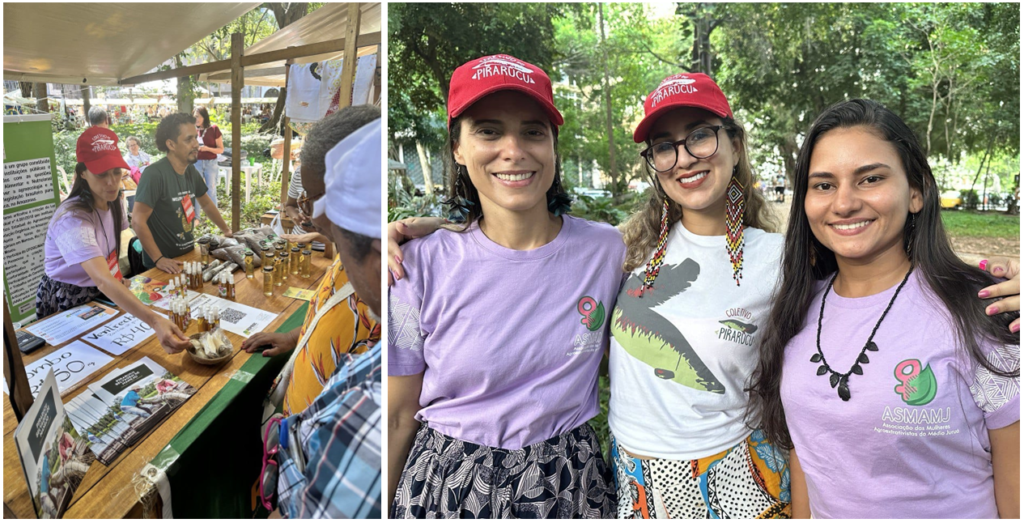
The president of ASMAMJ, Rosangela Cunha, a young riverine woman and resident of the São Raimundo community of RESEX Mid-Juruá, emphasizes the importance of these events as spaces for exchanging experiences, visibility, and recognition. She also highlights the struggle of women and young people:
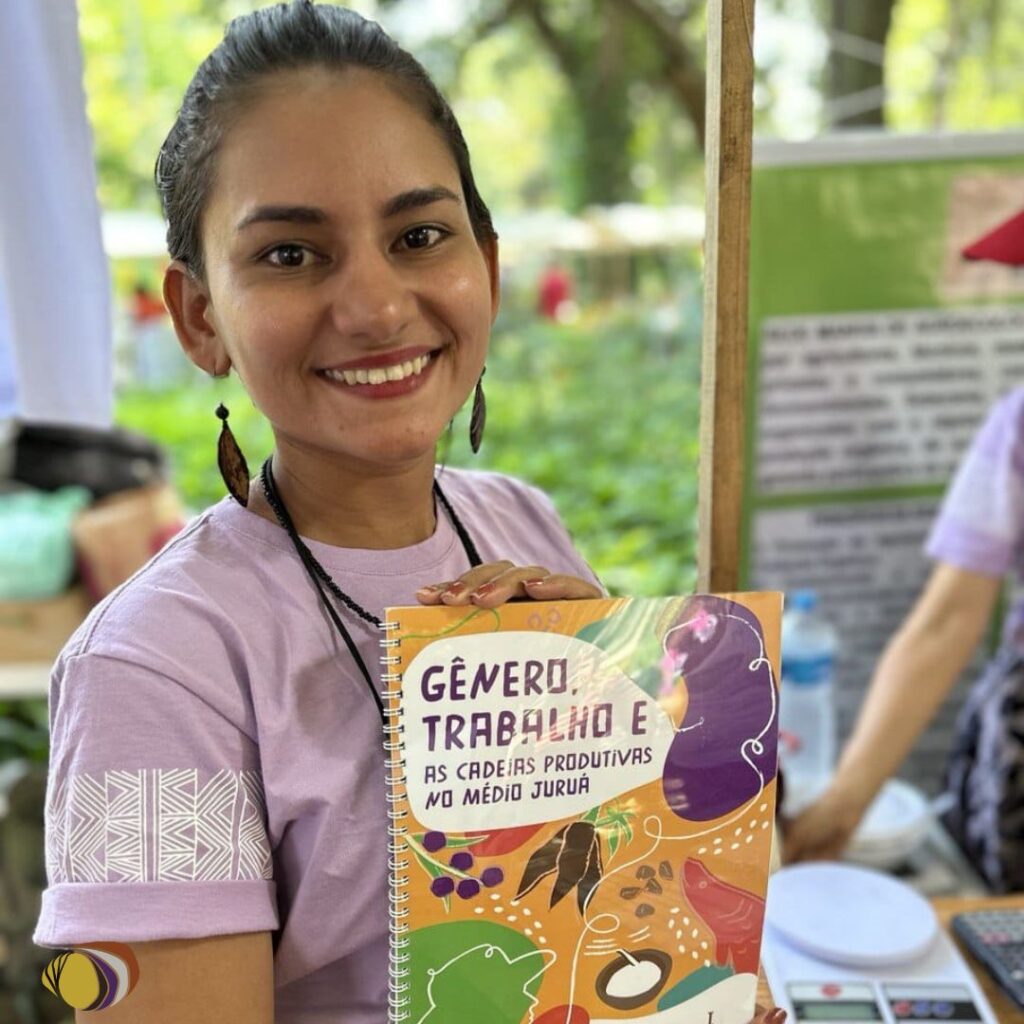
Photo by Priscila Steffan.
Knowledge Dialogue Cycle on Participative Fisheries Management in the Amazon at CIMFAUNA
In the same week of November, while the CBA was taking place in Rio de Janeiro, ASMAMJ and Instituto Juruá were also present at the International Congress on Wild Fauna Management in the Amazon and Latin America (CIMFAUNA), on the invitation of WCS Brasil (Wildlife Conservation Society) in Santa Marta, Colombia.
Represented by Evaneide Costa (Preta) and Irlene Figueiredo (Moça), ASMAMJ actively participated in the first meeting of the Knowledge Dialogue Cycle on Participative Fisheries Management in the Amazon, sharing experiences with representatives from different organizations and communities. ASMAMJ’s participation had the technical support of Camila Duarte Ritter, researcher at Instituto Juruá. This initiative was carried out by Aliança Águas Amazônicas and WCS, within the scope of CIMFAUNA XV, which is organized by the Wild Fauna Management Community in Latin America.
The event was linked to the thematic axis of the Congress, entitled “Experiences of local communities in wildlife management”, covering topics such as cultural systems and worldviews, community monitoring, sustainable use, human well-being and community management proposals.
This first meeting of the Knowledge Dialogue Cycle was based on the experiences of the Citizen Science Network for the Amazon between the years 2017 and 2020. 19 people participated in the meeting, representing 13 organizations, including representatives of five management groups in the Amazon sub-basins (Peru), Napo and Putumayo-Içá (Ecuador), Juruá, Madeira, Purus and Middle and Lower Amazonas (Brazil). With special emphasis on the presence of representatives of the indigenous peoples of the Kichwa nationality (Ecuador), of the people of the Paumari waters (Amazonas, Brazil) and of the Yagua people (Peru), as well as representatives of extractive and riverside peoples, and 12 professionals from civil society organizations. In total, 11 women and 8 men were present at the event.
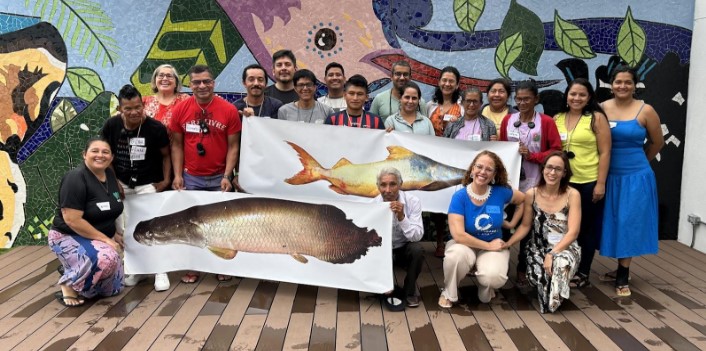
The meeting sought to share experiences, challenges and good examples between managers from different sub-basins. Common themes, such as fisheries management, conservation, public policies, gender and climate change were debated by the group and presented at CIMFAUNA XV at two different times.
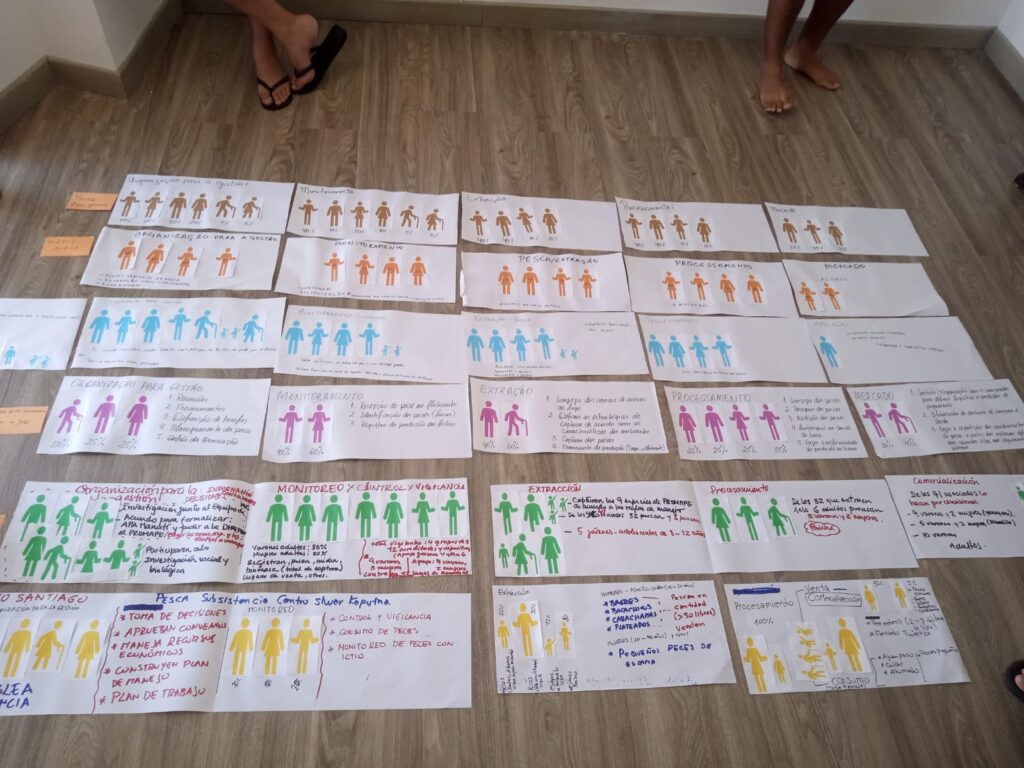
On behalf of ASMAMJ, Evaneide and Irlene presented their realities, their social organization and the struggle of women in Mid-Juruá for recognition of their work.
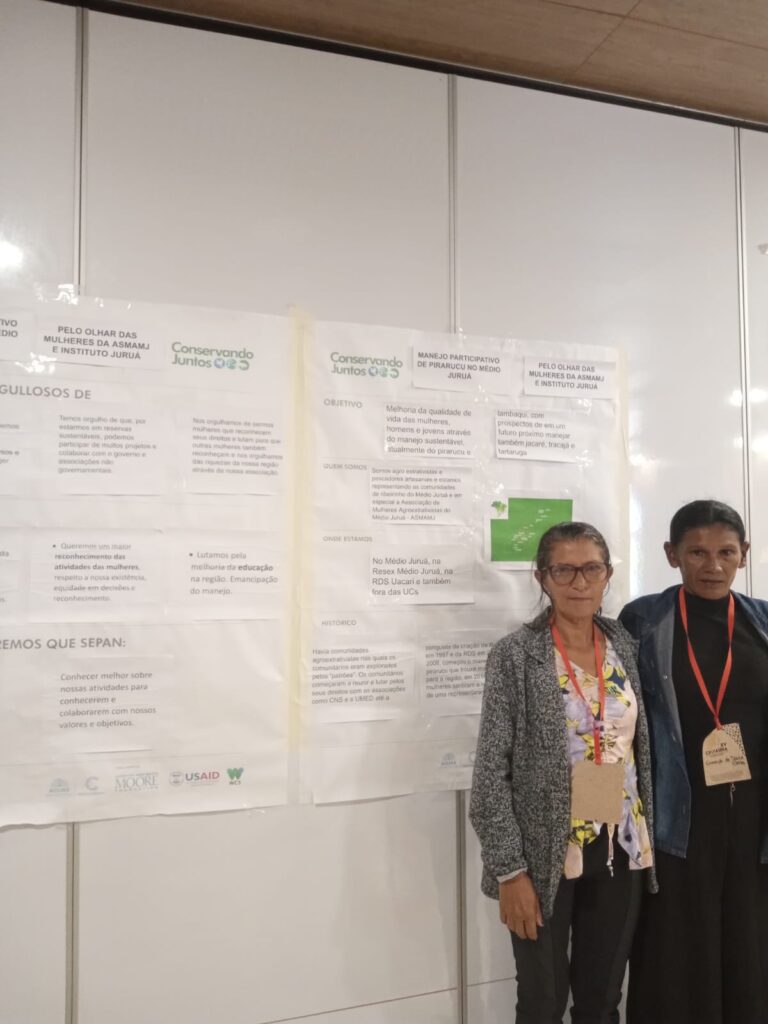
Furthermore, Irlene presented the topic of gender in fisheries management and Evaneide presented the topic of Climate Change and its impacts in the interior of the Amazon.
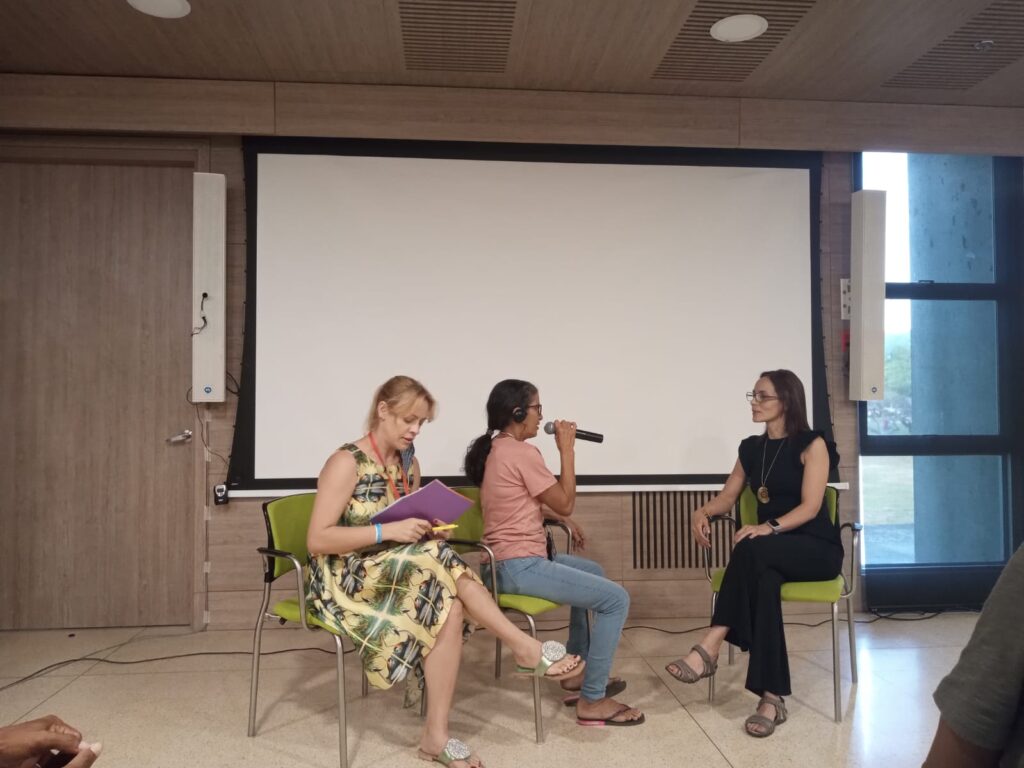
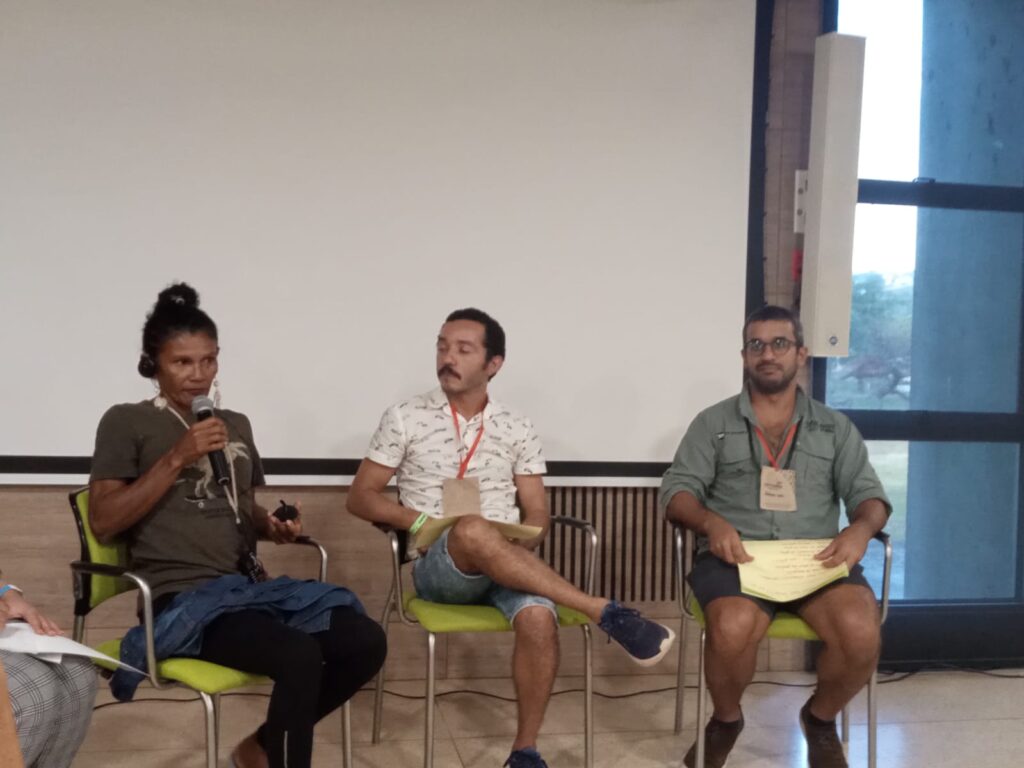
“I felt very happy, because I saw that, despite the distance, everyone was talking about the same thing, and that people from many places were interested in what we do in our region.” (Evaneide)
Both congresses reinforce the Instituto Juruá’s commitment to promote the diversity of knowledge and value riverside and indigenous communities as mobilizers of a science that seeks practical and purposeful solutions, from an inside-out perspective. This reinforces what the text of the Carta Carioca (political document read at the end of the CBA) says: the “expression of the people’s science” must be strengthened as an engaged science, capable of transforming oppressive structures that generate ills in society.

